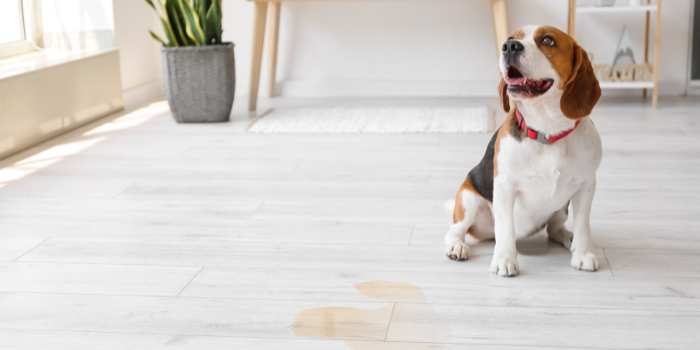Whether it’s a “number one or two”, we understand that pet toileting accidents around the house are no fun to deal with!
Here are some of the top reasons senior pets start having unusual toileting accidents indoors and what we can do about them.
1. Incontinence
Urinary incontinence often occurs due to “bladder weakness” – this is usually a developed bladder sphincter mechanism problem. Some spinal issues can also affect bladder or bowel nerve functions, resulting in changes to toileting abilities.
2. Abnormal urine or stools
Whilst senior pets may technically have reasonable “holding” capacity, they may still toilet around the house if they have an increased urge to do so.
Causes of increased urinary urge include:
- Causes of increased urine quantity, such as kidney disease
- Causes of increased urinary urgency, such as urinary tract infections, bladder stones, or lumps in the bladder
Increased faecal urgency is often due to gastrointestinal diseases causing bowel irritation, e.g. inflammatory bowel disease. However, pets may also strain out small amounts of faeces in odd places if they struggle with underlying constipation.
3. Difficulties toileting
Senior pets can be reluctant to go outside to toilet if they have eyesight or mobility issues (e.g. arthritis). This may lead them to toilet inappropriately around the house instead.
4. Behavioural changes
Pets developing cognitive decline (age-related brain deterioration) or other brain issues may become confused and forget their previous toilet training.
How do we treat the issue?
The first step in managing inappropriate toileting is to determine why the issue is occurring in the first place! This usually involves a full physical examination and basic diagnostic testing, such as blood and urine tests. In some cases, we may also recommend other tests, e.g. X-rays or ultrasound scanning of the bladder. Once we have a diagnosis, our vets can discuss treatment options to help normalise the pet’s problematic toileting habits.
For more information on pet brain and organ health, consult our vets—we’re experts at senior pet care!

